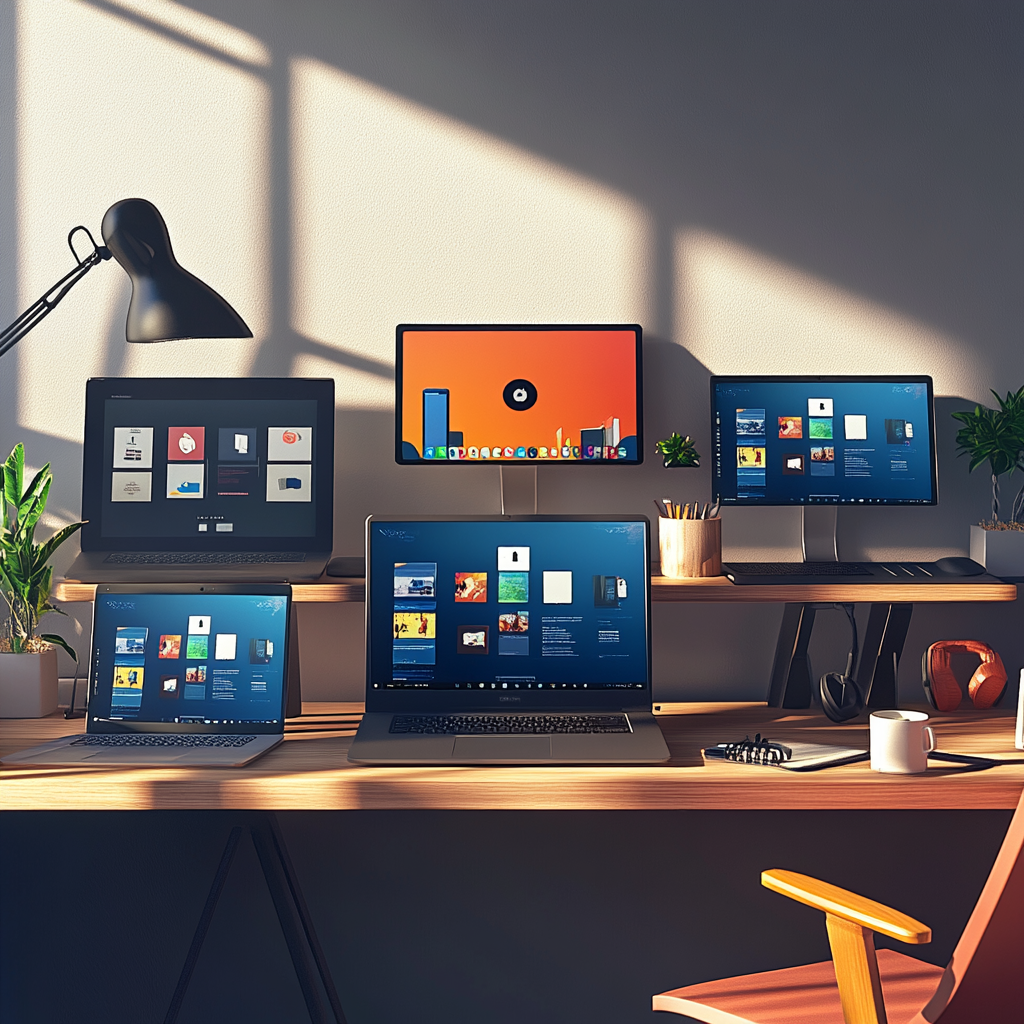Table of Contents
5 Best Laptops for Remote Work
Introduction
Remote work has become a significant aspect of modern employment, making the choice of a reliable laptop crucial for productivity and efficiency. When selecting a laptop for remote work, consider factors such as performance, portability, battery life, and connectivity to ensure it meets your professional needs.
What Makes a Laptop Ideal for Remote Work?
- Performance Requirements: Depending on your job, you’ll need varying levels of CPU power, RAM, and storage. For instance, creative professionals may require higher specifications compared to administrative roles.
- Portability and Build Quality: A lightweight and durable laptop is essential for remote workers who may need to work from different locations.
- Battery Life: Long-lasting battery life is vital, especially if you’re working in environments where charging options are limited.
- Connectivity Options: Ensure the laptop has reliable Wi-Fi capabilities and sufficient ports (USB-C, HDMI) for peripherals.
- Ergonomics and Comfort: Consider screen size, keyboard comfort, and the availability of accessories to maintain a healthy and comfortable work setup.
5 Best Laptops for Remote Work in 2025
Here are five laptops that stand out for remote work, each catering to different needs and budgets:
1. Apple MacBook Air 15-inch (M2)
The MacBook Air 15-inch with the M2 chip offers exceptional performance, a sleek design, and impressive battery life, making it a top choice for remote workers.
2. Dell XPS 13
Known for its sleek design and powerful performance, the Dell XPS 13 is widely regarded as the best overall laptop for remote work in 2024.
3. HP Spectre x360 14
This 2-in-1 convertible laptop offers excellent performance, a high-quality display, and a versatile design, making it suitable for various remote work tasks.
4. Lenovo ThinkPad X1 Carbon Gen 9
Renowned for its durability and robust performance, this laptop is ideal for professionals seeking reliability and efficiency in their remote work setup.
5. Microsoft Surface Laptop 7th Edition
With great performance, battery life, and display, the Surface Laptop 7 is a strong competitor in the remote work laptop market.

Key Considerations When Choosing Your Laptop
- Matching Laptop Specs to Your Workload: Assess whether your tasks are light (e.g., writing, emailing) or heavy (e.g., video editing) to determine the necessary specifications.
- Operating System Preferences: Decide between Windows, macOS, or ChromeOS based on your software requirements and personal comfort.
- Future-Proofing Your Laptop: Consider the potential for hardware upgrades, warranty options, and the long-term value of the laptop.
Accessories to Enhance Your Remote Work Setup
- External Monitors: For increased productivity with dual-screen setups.
- Keyboards and Mice: Invest in ergonomic peripherals to improve comfort during extended work periods.
- Docking Stations: Facilitate easy connection of multiple devices and peripherals.
Frequently Asked Questions
- What is the minimum RAM recommended for remote work?
8GB is sufficient for basic tasks, but 16GB or more is advisable for multitasking and resource-intensive applications. - Are gaming laptops good for remote work?
Yes, their high-performance components can handle demanding tasks, but they may be less portable and have shorter battery life. - How important is webcam quality for remote workers?
High-quality webcams are essential for clear video conferencing, a staple in remote work environments. - Should I invest in an extended warranty for my laptop?
An extended warranty can provide peace of mind, especially for high-end laptops, protecting against potential hardware issues.
Conclusion: Find the Right Laptop for Your Remote Work Needs
Selecting the appropriate laptop involves aligning its features with your specific remote work requirements. Evaluate your workload, preferences, and budget to make an informed decision that enhances your productivity and comfort in a remote working environment.
